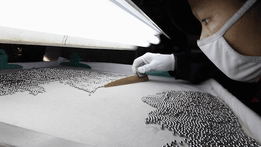Tel: 860-571-3602 | info@hartfordtechnologies.com


Before they can introduce medical devices to the market, original equipment manufacturers (OEM) must perform and pass FDA-approved medical device process validation to ensure that the products they produce are safe, meet specified user and technical needs, and satisfy regulatory requirements.
Post-production inspection or testing can provide verification that a product meets FDA and ISO 13485 specifications, but would require testing of every device a manufacturer produces. In addition to being incredibly impractical, testing each product would never reveal all the possible variations within individual products and the testing itself could potentially destroy the product. Process validations for medical devices, then, are the only reliable way to reveal processing deficiencies.
Process validation is the collection and evaluation of data throughout a process, from the process design stage through production, with the intent of establishing proof that a process will consistently deliver quality products. Process validation ensures that the medical devices used in patient care, testing and research meet regulatory standards for the health and well-being of the public, despite these challenges. Process validation also serves as quality control for medical manufacturing and helps ensure business success for the manufacturer.
OEMs often face a number of challenges associated with medical manufacturing. The size and structure of medical devices can vary greatly, for example, as can the management methods, assembly lines and production capacity needed to make them. Production and assembly, particularly the number of manufacturing steps per unit, strongly influences the application of process validation. They also influence which process validations a device manufacturer might use.
So which process validations should medical device manufacturers perform? Here are four essential process validations every OEM should perform.
1. Prospective validation
Performed prior to process implementation, prospective validation establishes documented evidence that a system does what it proposed to do. Pharmaceutical manufacturers typically use this approach to validation when developing a process for a new formula or production in a new facility.
2. Retrospective validation
Manufacturers use historical data to create a retrospective validation for facilities, processes, and process controls that have not already undergone a formally documented validation process. Typically, retrospective validation is only appropriate for well-established processes, and is not acceptable for products that have undergone changes in composition, operating processes, or equipment. Retrospective validation is a useful tool for auditing a validated process.
3. Concurrent validation
Focusing on these four process validations can help medical device manufacturers supply the medical community with the products they need, and help OEMs reduce costs in product and process failures.
Hartford Technologies has a quality control system that ensures our custom bearings are of the highest quality. All new and recurring ball and bearing programs undergo the Hartford Advanced Product Quality Planning process, which focuses on continuous improvement and preventing defects, rather than focusing simply on defect detection. Using advanced quality control systems helps Hartford Technologies bring the highest quality custom bearings into the medical manufacturing industry supply chain. If you want to learn more about Hartford Technologies we invite you to contact us today.